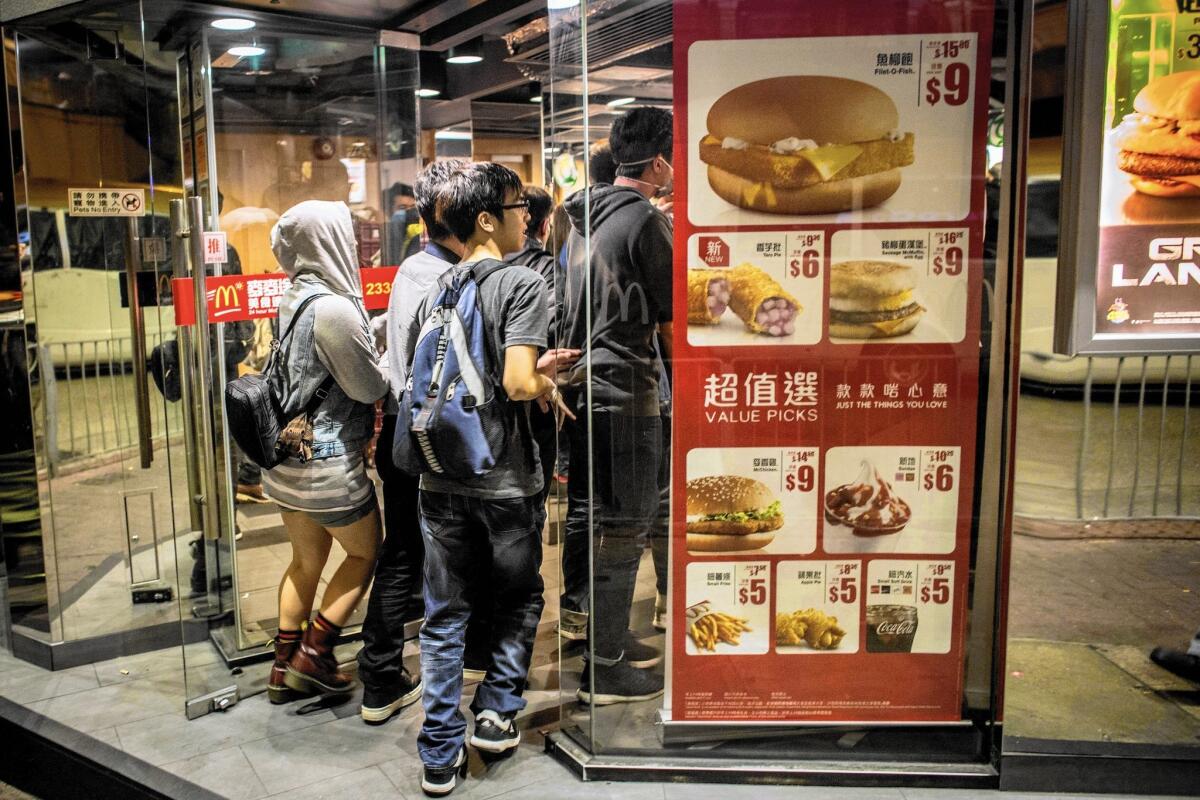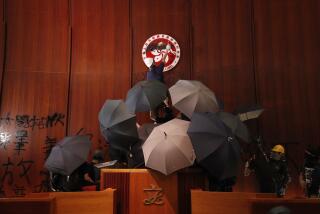Hong Kong demonstrators turn to strolling for democracy

- Share via
Reporting from Hong Kong — For decades, pro-democracy demonstrators here have tried marching. And for more than two months now, they have camped outside government headquarters. In recent days, as they face ouster from their encampments, they’ve begun a new tactic: strolling for democracy.
After dusk, throngs of demonstrators, self-styled shoppers all, pace the thoroughfares across several neighborhoods in the city’s Kowloon district, putting police on edge.
The strolling concept took shape Wednesday in Mong Kok, the bustling shopping district where authorities had just forcibly dismantled long-standing protest encampments.
Hours after the clearance was completed, demonstrators returned to flood major intersections, attempting to build barricades and retake lost territory. When police interceded too quickly for them to succeed, the demonstrators, said they were there to shop, and blocked traffic. Officers wielding batons herded them back onto the sidewalks.
On Friday, the protesters unfurled umbrellas, their trademark protest symbol, and clashed with police. On Saturday, after some trial and error, about 300 protesters-cum-shoppers undertook a less confrontational stance: walking miles and miles, back and forth, into the wee hours, all under the police’s watchful gaze.
Some protesters came with printed signs reading, “I want free and fair elections.”
At times they chanted their demands. They took care to hush the chant when turning into residential streets. And when sympathizers looked out their windows, the strolling demonstrators greeted them with a three-finger salute popularized by “The Hunger Games” films.
The demonstration has become the longest pro-democracy campaign on Chinese soil. Hong Kong, a former British colony, reverted to Chinese rule 17 years ago.
Protesters took to the streets in late September, angry about guidelines for Hong Kong’s 2017 chief executive election. The demonstrators say the framework, issued by authorities in mainland China, does not allow for the free nomination of candidates.
After drawing massive crowds to the streets in late September and early October, protests have diminished substantially, though a few thousand demonstrators remain encamped in the Admiralty and Causeway Bay districts.
At midnight Saturday, Chan Chak Kwan came to join the “stroll” after work and said he missed the Mong Kok encampments. “I want to do my bit,” said Chan, 24, a stage actor. “And this helps keep the fire going.”
Many said they were protesting police abuse in the destruction of the encampments and the arrest of protesters, including minors and journalists. Nearly 200 have been arrested.
A petition to the United Nations Human Rights Commission to launch an inquiry police abuse began circulating online Friday and had already garnered 15,000 signatures.
Law is a special correspondent.
More to Read
Sign up for Essential California
The most important California stories and recommendations in your inbox every morning.
You may occasionally receive promotional content from the Los Angeles Times.










